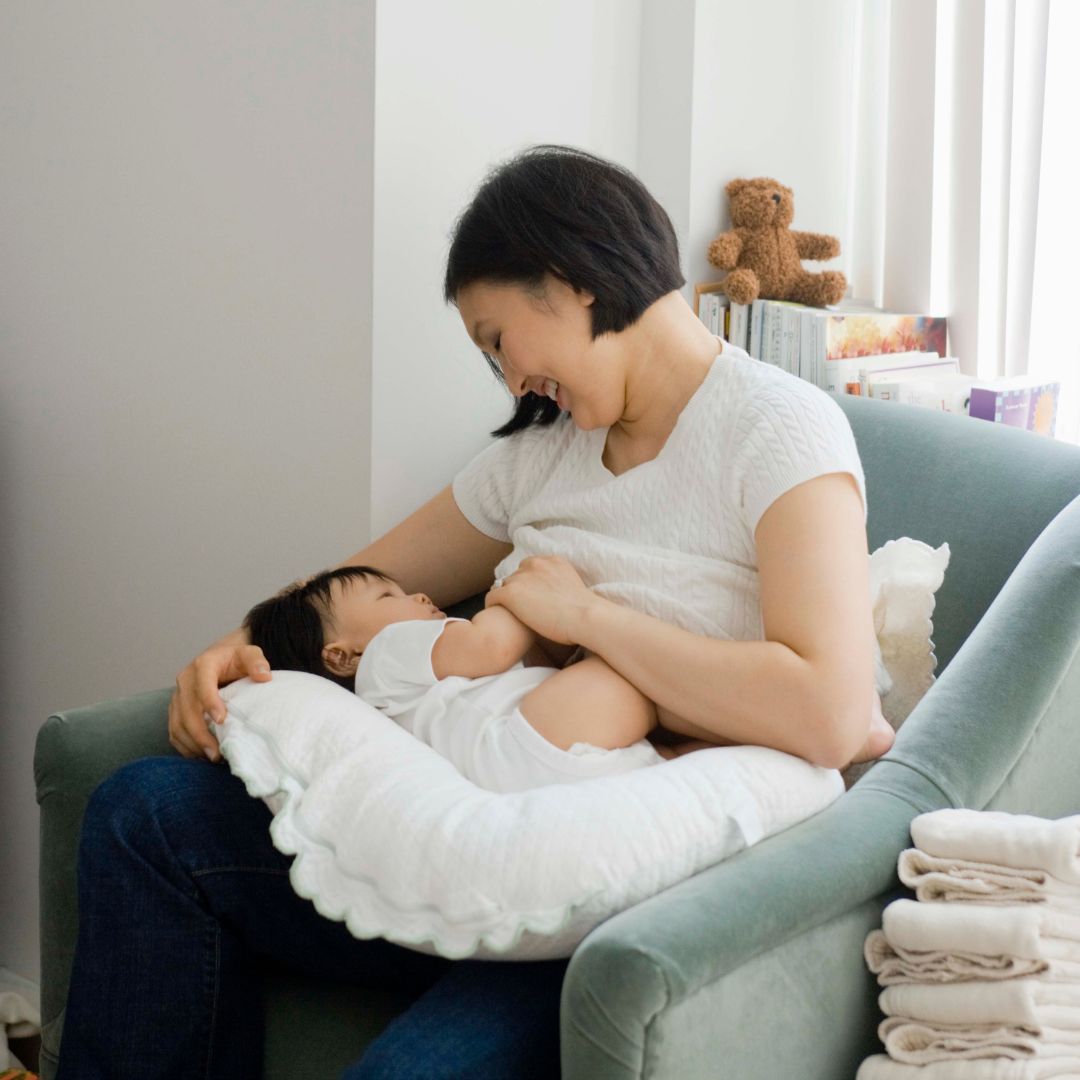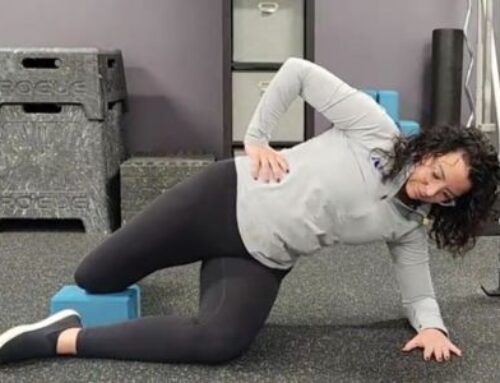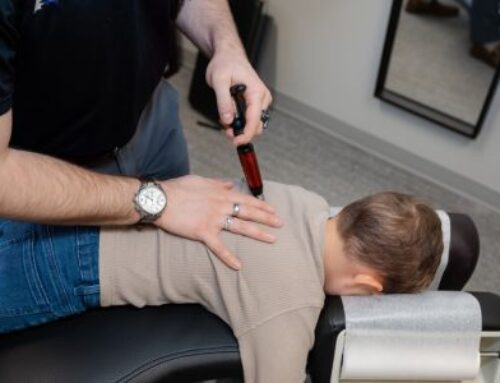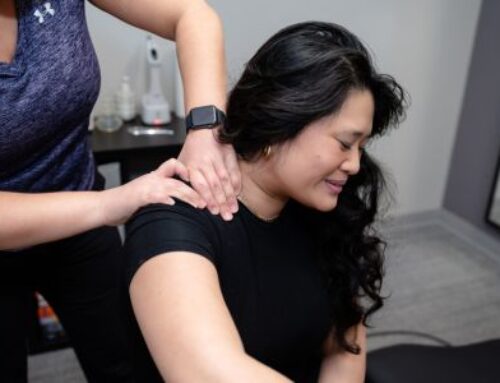No matter how you choose to feed your baby, it will cause strain on your body – especially the first few months when they are unable to feed themselves. Setting your environment up for success early on is the best way to help keep your aches and pains as minimal as possible. In practice, I share my tips to make my patients’ day-to-day life easier and as pain free as possible. With that being said, here are some things to think about regarding your baby’s feeding set up:
Location matters
Let’s start with where you are choosing to feed. Pick a spot that is easily accessible and available for the majority of your feedings. Only having to set up 1-2 spaces ahead of time makes the rest very easy to accomplish. Think- a spot in the living room or nursery, likely a chair or couch. You want something that supports your body well, so something with armrests and a high back is ideal.
Find a supportive position
Grab the pillows! This is very important, especially for tiny babies. The smaller the child, the more pillows you will likely need. The whole idea of the pillow is so you can bring the baby to you, instead of folding yourself over so you move closer to the baby. We often tell this to the breastfeeding moms, but forget about bottle feeders too! It is so important to remember this step! Using a boppy or my brest friend pillow are usually the two biggest but it is easy to slide a regular bed pillow or throw pillow underneath the feeding pillow to create more height if you need it.
Keep your head up
While you are feeding your baby, you tend to be looking down at them for 15-20 (ish) minutes at a time. Yes, we want you to check in, make sure they are still drinking the milk, not choking, etc. but don’t forget to look at other things too! Move your head through some full ranges of motion to reduce the stress on your neck from looking down the whole time. And no, this is not a great time to grab your phone and scroll through social media because you are likely looking down during that too!
Practice mindfulness
This can be a great time for you to check in with yourself on how you are feeling too. I often tell parents to practice some deep breathing during this time because you are in this spot without the ability to multitask with many other things, so use it to your advantage. We know that children pick up on the mood of their caregivers easily so the more in tune you can be, likely the better the feeding will go.
Nighttime Feedings
The middle of the night feedings tend to be the most problematic for most of the parents we talk to in the office. Knowing it takes effort to get out of bed and get this area set up, many parents choose to have bottles ready at the bedside or breastfeed in bed to save time and energy. This can work for some, but often this is when parents note the most discomfort when feeding. Usually my advice for breastfeeding parents is to feed in a side lying position at night if they are going to breastfeed in bed, your body is likely the most supported in this position. If you are bottle feeding, as annoying as it is to get out of bed, I recommend you move to whatever your daytime set up is. Keep a nightlight or dim light nearby so you aren’t turning on overhead lights but the few extra steps you take to that area will likely be less effort than the time you spend trying to “fix” yourself from being uncomfortable throughout the whole feed staying in bed.
Mobilize
New parents are in a flexed position most of their day, so we need to be sure to create extension, especially in the upper part of the spine throughout the day. Banded pull-aparts and banded pass throughs can be a really good way to do this quickly. They don’t take much effort and can provide a good amount of relief in a short amount of time. Check out this demonstration video then give them a try.
There are also plenty of feeding experts in our community who likely have other tips that you might find helpful, so feel free to ask for other resources at your next visit and your provider can lead you in the right direction. For aches and pains as a parent, the chiropractors and massage therapists at PHC are ready to help you feel better so schedule an appointment soon!





